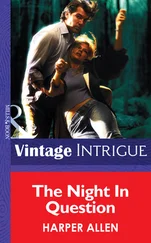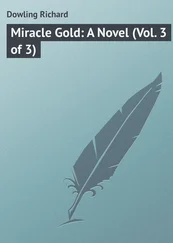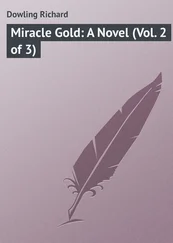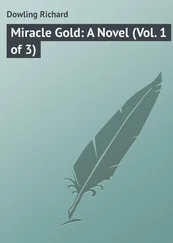Richard Gordon - A QUESTION OF GUILT
Здесь есть возможность читать онлайн «Richard Gordon - A QUESTION OF GUILT» весь текст электронной книги совершенно бесплатно (целиком полную версию без сокращений). В некоторых случаях можно слушать аудио, скачать через торрент в формате fb2 и присутствует краткое содержание. Жанр: Юмористическая проза, на английском языке. Описание произведения, (предисловие) а так же отзывы посетителей доступны на портале библиотеки ЛибКат.
- Название:A QUESTION OF GUILT
- Автор:
- Жанр:
- Год:неизвестен
- ISBN:нет данных
- Рейтинг книги:4 / 5. Голосов: 1
-
Избранное:Добавить в избранное
- Отзывы:
-
Ваша оценка:
- 80
- 1
- 2
- 3
- 4
- 5
A QUESTION OF GUILT: краткое содержание, описание и аннотация
Предлагаем к чтению аннотацию, описание, краткое содержание или предисловие (зависит от того, что написал сам автор книги «A QUESTION OF GUILT»). Если вы не нашли необходимую информацию о книге — напишите в комментариях, мы постараемся отыскать её.
A QUESTION OF GUILT — читать онлайн бесплатно полную книгу (весь текст) целиком
Ниже представлен текст книги, разбитый по страницам. Система сохранения места последней прочитанной страницы, позволяет с удобством читать онлайн бесплатно книгу «A QUESTION OF GUILT», без необходимости каждый раз заново искать на чём Вы остановились. Поставьте закладку, и сможете в любой момент перейти на страницу, на которой закончили чтение.
Интервал:
Закладка:
'Who's going to prescribe it?' Eliot asked immediately.
'Exactly. For any doctor, that would be contributing to the extinction of life, and against our principles.'
'And against the law.'
Dr Campion nodded. 'There is a difference in assisting a man to die on the end of a rope and in bed. We can perhaps allow ourselves sometimes to be part of the natural process, but never of the unnatural one. Otherwise, we should become executioners ourselves. But Mr Churchill is most wilful. He cannot understand these ethical niceties are so important to us. He imagines that we are being pig-headed.'
'You asked me here to sign the prescription?'
'You have saved me a deal of unhappy explanation, Dr Beckett. Crippen was known to you, as to no other medical man-'
'Give me the sheet of paper,' said Eliot at once.
'You realize, Dr Beckett, that the General Medical Council could be sticky about this? Should some enemy in the profession learn of your action-'
'I'd be struck off?' Eliot added thoughtfully, 'I'll risk that, for Crippen.'
'What drug will you give?'
'There's only one powerful enough. Hyoscine.'
Dusk comes early to London in mid-November, but the night is short for the man who knows he will not see the end of another day. The condemned cell was fifteen feet square, with a high-up barred arched window. Crippen wore a rough grey jacket and trousers, and a white calico shirt. He had no tie, and tapes instead of buttons, lest he swallowed them and forestalled his execution, or awkwardly deferred it with an operation for obstruction of the intestines. Several others had worn the same outfit, but the authorities fumigated it in between, as though they had died undramatically from smallpox.
The clocks untidily struck away the hours with terrible unconcern. At midnight, Major Mytton-Davies brought his last word from Ethel, an opened telegram just delivered by a boy on a scarlet bicycle. At seven, the governor was back. There were two hours to go. Crippen was hunched on the black-painted bedstead like a prison hospital cot. Two warders sat with practised stolidity under the gas, at the two-foot square table where he wrote his daily letters to Ethel, the blotches on its greasy surface as fixed in his mind's eye as a map to a treasure-hunter. The warders enjoyed three days' special leave from that morning. They had played cribbage and snakes-and-ladders with Crippen, to divert his mind. It was in the regulations.
The governor had the dose in a mug of cocoa. 'Something to buck you up,' he explained. Crippen drank it, grimacing at the bitterness. The governor wondered if the doctor knew he was poisoned near to death.
At his customary three minutes to the hour, hangman Ellis entered the cell. He wore a blue suit, a high starched white collar and a black tie. Folded in his jacket pocket was an Order to Hang, half a dozen lines penned in clerk's copperplate and signed by Charles Johnston, Sheriff of London, which spared Ellis being as black a murderer as his victim. Behind came assistant hangman Willis.
The two warders had already been joined by the chaplain, robed for a funeral, lost at ministering to a prisoner comatose beyond confession or repentance. Crippen lay on the grey blanket, breath faint, cheeks dusky. With his gold-rimmed glasses on the table was the half-mug of brandy, inexorably provided by the regulations. The warders eyed it, having agreed to share.
Though Crippen was nearer corpse than man, rules required following. Ellis carried a foot-wide buckled black-leather body-belt with four pairs of straps across the front. He slid it round Crippen's waist, securing it at the back, strapping wrists and elbows across his midriff. He took from Willis a short black strap which he loosely secured below Crippen's knees, and a conical linen cap to stick on his head like a dunce.
_'I am the resurrection and the life, saith the Lord,'_ began the chaplain. Had Belle had Crippen converted, he would have got it in Latin.
A hanging was a singular legal-ecclesiastic ceremony. Outside the cell, a procession had assembled. The chief warder led, followed by the chaplain, who had reached, _'Man that is born of woman hath but a short time to live, and is full of misery,'_ by skipping. Next came Crippen, limp between two warders. Then Ellis and Willis, Major Mytton-Davies, under-sheriff Rupert Smythe in frock coat and black cravat, Dr Campion and the deputy chief warder for the rear.
The way was short. The execution shed stood open beyond the facing oaken doors of half a dozen condemned cells. A stout beam ran from one whitewashed wall to another, with three shiny hooks like a butcher's. From one hook, a brand-new rope two inches thick hung by a brass eyelet. Attached to its end by a clip, like dog-collar to lead, was a yard of soft rolled leather, tapering to a small brass eyelet which created the noose. This hung precisely over the trap, a thread drawing a loop of rope towards the cross-beam. The scaffold was well-tried, designed for the Home Office in 1885 by Lieut-Col Alten Beamish of the Royal Engineers. The thread was Ellis' own idea, of which he was proud. Hanging does not invite much innovation.
The sides of the trap always underran two planks. The public imagined the objects of its retribution standing a few remorseful seconds awaiting the drop, but a man can seldom support the weight of a body from which life will be shordy squeezed. Two warders held every prisoner by the armpits, as they were obliged with Crippen. The obligatory onlookers made the shed crowded. Willis pulled cap over face, Ellis applied the noose by snapping the cotton, securing it with a stiff leather washer behind the right ear. He pulled the iron lever, shifting an unseen pair of well greased steel bolts under the twin trap-doors of three-inch thick oak, which crashed into their hooks on the whitewashed brick walls of the pit below. Crippen disappeared.
A faint slap came from the stone floor of the pit, as one of his slippers fell off. _'Forasmuch as it hath pleased Almighty God in his great mercy to take unto himself the soul of our dear brother here departed,'_ said the chaplain. The violently twisting rope slowed. The body needed stay an hour, before delivery to Mr Shroeder, the coroner who had 'sat on' Belle half a mile away. By noon, Crippen would end in quicklime, and they were letting him have Ethel's letters dropped in. Ellis got Ј5, Willis Ј2 10s. On October 10, five miles to the north, they had buried in Finchley Cemetery all they had left of Belle.
The black-framed notice on the prison gate was signed by the governor, the under-sheriff and the chaplain. The customary bell was not tolled, from official tenderness towards three other men inside shortly to undergo the same procedure.
It was uncharacteristic of Eliot to take a cab from the Savoy that misty morning. He had always shunned the carnivals of the people, especially the macabre ones. He felt impelled to see the end of the drama he had watched before it began. And he was anyway the executioner's assistant, as last intended with the German Emperor.
The crowd at nine o'clock was thinner than Eliot expected. Perhaps the public was growing either tired of Crippen or ashamed over him. As he strode away afterwards, a touch came to his elbow.
'Mouldy bread!' Bill Edmonton stood grinning. It had become a Holloway catch-phrase.
'Hello, Bill! How's your boils?'
'Gorn, doctor. I changed me job.' But not your habits, Eliot thought, catching the reek of beer. 'I'm on the railway nah.'
Eliot found half-a-crown in his pocket.
'Thank you, doctor. Always said you was a proper gen'man.' Bill pointed his short clay pipe towards the prison across the Caledonian Road. 'Remember when I met 'im? In the free medicine shop.' Eliot nodded. 'I got ter know 'im pretty well,' Bill continued proudly. 'Used ter come to the cattle market regular, in the mornin's, on 'is way ter work. 'E'd bring scraps, bones, wot Mrs Crippen 'ad left over, or cadged orf of the other ladies rahnd 'illdrop Crescent. Mind, 'e stopped coming' abaht the middle o' last February. Then o' course he 'adn't a wife no more to do 'is shoppin', 'ad 'e?'
Читать дальшеИнтервал:
Закладка:
Похожие книги на «A QUESTION OF GUILT»
Представляем Вашему вниманию похожие книги на «A QUESTION OF GUILT» списком для выбора. Мы отобрали схожую по названию и смыслу литературу в надежде предоставить читателям больше вариантов отыскать новые, интересные, ещё непрочитанные произведения.
Обсуждение, отзывы о книге «A QUESTION OF GUILT» и просто собственные мнения читателей. Оставьте ваши комментарии, напишите, что Вы думаете о произведении, его смысле или главных героях. Укажите что конкретно понравилось, а что нет, и почему Вы так считаете.






